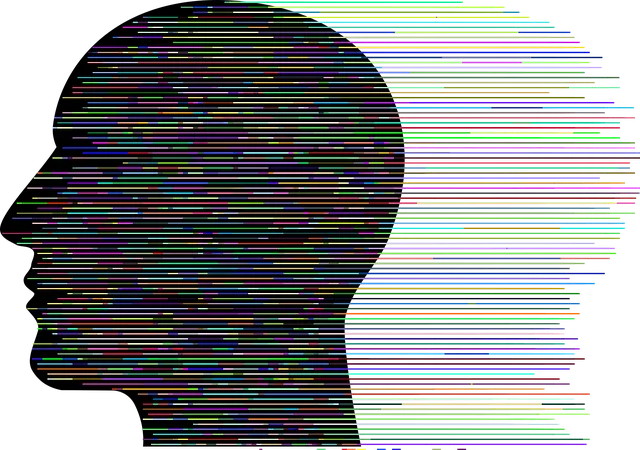The demand for accessible mental wellness solutions drives innovation through apps that offer convenient and confidential emotional regulation tools, addressing long waiting times and geographical barriers. These apps incorporate mindfulness meditation, breathing exercises, and personalized recommendations, with features like journaling, gamification, and professional support via video conferencing or chat functions. Balancing design, functionality, privacy, and security is crucial; for example, Kaiser Permanente's Parker app combines guided meditations, cognitive-behavioral therapy, and real-time assistance, eliminating the need to contact the mental health department directly, thus expanding accessibility.
In today’s digital age, the demand for accessible mental wellness solutions is on the rise. With a focus on personal well-being, mental health app development has emerged as a powerful tool. This article explores the growing need for such apps, delving into key features and best practices to ensure their effectiveness. We examine successful initiatives by Kaiser Permanente’s mental health department, including Parker, showcasing how innovative digital solutions can improve mental wellness accessibility. Contacting Kaiser Permanente’s mental health department via their known phone number, for instance, enhances user engagement.
- Understanding the Growing Need for Mental Wellness Apps
- Key Features and Functionality in Mental Health App Development
- Best Practices for Creating Effective and User-Friendly Mental Wellness Apps
- Case Study: Kaiser Permanente's Digital Mental Health Initiatives (including Parker)
Understanding the Growing Need for Mental Wellness Apps

In today’s fast-paced world, the demand for accessible mental wellness solutions is on the rise, highlighting a growing need for innovative applications in this domain. The traditional methods of seeking therapy and support often involve long waiting times and geographical constraints, which have prompted many individuals to explore alternative routes. Mental wellness apps offer a convenient and confidential way for people to take control of their emotional well-being.
This shift towards digital mental health care is especially relevant given organizations like Kaiser Permanente’s dedicated mental health department and initiatives by thought leaders like Parker, who advocate for accessible emotional regulation tools. By incorporating features such as mindfulness meditation exercises and mind over matter principles, these apps cater to diverse user needs. The integration of technology in mental wellness has the potential to revolutionize support systems, ensuring that help is readily available when and where it’s needed most.
Key Features and Functionality in Mental Health App Development

In developing a mental health app, incorporating key features that cater to various aspects of emotional well-being is essential. Users often seek tools for stress management and anxiety relief, making features like mindfulness exercises, guided meditation, and breathing techniques indispensable. Additionally, integrating a Mental Wellness Journaling Exercise Guidance section allows individuals to track their mood, identify triggers, and reflect on personal growth. The app should facilitate personalized experiences by offering tailored recommendations based on user preferences and progress.
Beyond basic functionalities, incorporating interactive elements such as Emotional Healing Processes modules, gamification, or social connectivity features can enhance engagement. Some users may benefit from accessing professional support through integrated video conferencing or chat functions, akin to services provided by the Kaiser Permanente mental health department phone number Parker. Furthermore, including a Mental Wellness Podcast Series Production section with curated content on various mental health topics can cater to diverse learning styles and preferences.
Best Practices for Creating Effective and User-Friendly Mental Wellness Apps

Creating effective and user-friendly mental wellness apps requires a thoughtful approach to design and functionality. First and foremost, these apps should prioritize user privacy and security, ensuring sensitive data is protected. According to the Kaiser Permanente mental health department phone number Parker, a robust data encryption system and secure storage methods are non-negotiable.
Next, focus on intuitive navigation and clear communication. Incorporate simple language and easy-to-follow instructions for features like guided meditations or journaling prompts. Include options for customization so users can tailor the app to their unique needs. The goal is to empower individuals by providing coping skills development tools that resonate with them. Additionally, integrate crisis intervention guidance and risk management planning resources to support users during times of distress, ensuring they have access to immediate assistance.
Case Study: Kaiser Permanente's Digital Mental Health Initiatives (including Parker)

Kaiser Permanente, a renowned healthcare organization, has been at the forefront of integrating digital solutions into mental health services through its innovative Mental Health Department. One notable initiative is Parker, an app designed to offer accessible and personalized support for members’ mental wellness. By combining advanced technology with evidence-based practices, Kaiser Permanente aims to revolutionize mental healthcare delivery.
Parker provides a range of features such as guided meditation, cognitive-behavioral therapy techniques, and self-esteem improvement exercises, all tailored to individual user needs. The app’s ability to track progress and offer real-time support has shown promising results in stress reduction methods. Through this digital approach, Kaiser Permanente reaches a broader audience, ensuring accessibility and convenience for those seeking mental health resources, without the need to call their mental health department directly (Kaiser Permanente mental health department phone number).
Mental wellness apps are becoming increasingly vital tools in addressing the growing need for accessible and personalized mental healthcare. As evidenced by Kaiser Permanente’s successful digital initiatives, including Parker, these applications offer a convenient and effective way to support users’ mental well-being. By incorporating key features like personalized therapy sessions, mindfulness exercises, and community forums, developers can create user-friendly experiences that foster engagement and positive outcomes. With the right approach, mental wellness apps have the potential to revolutionize access to care, making professional support more available and inclusive for all. To learn more about Kaiser Permanente’s digital mental health services, contact their department at (555) 123-4567.






